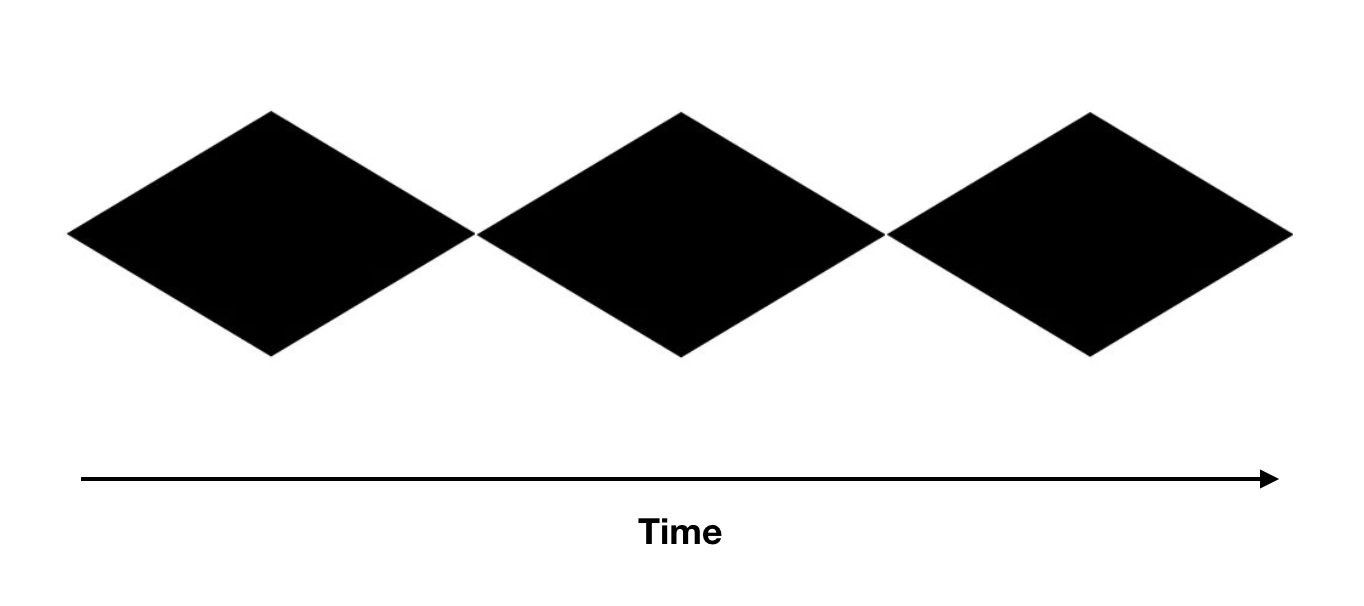Why You Need to Commit to Find REAL Freedom
A large and often difficult part of life is weighing up exploration vs commitment. We love to keep our options open and have space to evolve and change. But there is real power in committing. Committing to the things that matter to us. Yet, it seems impossibly challenging to decide when and how long to explore for, and when to commit. And whether that means commitment forever. But in commitment, you will find true freedom. The freedom you are really seeking.
Importance of Exploring
Throughout the whole of history, humans have shared an innate desire to explore. Prehistoric men and women stood curiously at the opening to caves and pondered what was over the next hill. There is a sense of adventure and discovery that is inbuilt within us. The spread of civilisation has been led by people who wanted to explore. And even today, when we have explored the whole planet, we are now looking beyond Earth to Mars to fulfil this exploration urge.
Early in life, we are driven to explore the world around us because our brains are collecting information on what pleases and harms us, what feels good and bad, what is worth pursuing further and what is worth avoiding.
We read, listen, debate, question and think. This exploration is all in the aid for the purpose of discerning the vital few from the trivial many.
Exploration allows us to work out what we want to do. What makes us different. How do we differentiate ourselves from the world. Whether that's through doing more original and whacky stuff or something else entirely, we have all been on a path where we are experiencing and expressing our individuality. We don't know what we want and part of life is working that, along with our identity, out.
Exploring though has diminishing returns the longer and the extent to which you seek new things. After you've explored one new country, each further one has less and less impact. Your first curry is exotic and memorable but they become less interesting as you try more and more.
There is also a cost to exploring: you have to give up stability. To experience newness and novelty you give up consistency and rootedness.
Importance of Commitment
Eventually, the exploratory phase exhausts itself. You get to a point where you know who you are, you know what you care about and your life is designed to enhance this. It's not because we run out of things to try, places to visit and people to meet. In fact, it's the opposite. As the exploratory phase of our life starts to end and as we become older, we begin to realise that there is actually too much of the world to explore.
There is actually so much going on - too much to take in. We are unable to touch and taste everything, meet everyone, see every country, read all the books, listen to all music. There’s too much potential experience and the sheer magnitude of our existence overwhelms us. We therefore move towards commitment.
There is also a real need for commitment. Without it, without the commitment to something, our life begins to feel empty and pointless. Our life becomes full of superficial stuff that builds up and then quickly serves no purpose. We need to work on something we care about. And as part of this, we have to give up the opportunity to explore more. Give up endless possibilities.
Also, there is the case that to make an important impact at something, you have to spend a long time doing it. You have to really work at it.
Commitment and Freedom
Everyone love exploring, to many it is the definition of freedom which is what so many young people are striving for. However, contrary to popular belief, commitment gives freedom. This is because, distractions become unimportant and frivolous and commitment actually hones your attention and focus. It directs them towards what is best for you, what is best for your happiness and health. Decisions become easier, and you no longer fear on missing out, knowing that what you already have is good enough. Why would you ever stress about chasing more, seeing more, being more.
Also, as Mark Manson says "real freedom is not choosing the thing you want in life, it is choosing what to give up. Diversions come and go. Pleasure never lasts. Variety loses its meaning. But you will always be able to choose what you are willing to sacrifice, what you are willing to give up."
So real freedom is about this choice of what we give up. Freedom, in the traditional way we think about it, can be overwhelming. We can become addicted to infinite options, to the constant possibility of bigger and more. There is a point where too much freedom will discourage commitment because we are too aware of everything that we are potentially giving up. But, freedom is only meaningful when it is given up. And we give up freedom by making commitments.
Although, too much commitment can become overwhelming. If we over-commit, we can feel trapped, as though we’ve lost our identity. When we’re over-committed, we lose the sense of freedom of choice—and without the freedom of choice, then commitments lose their significance and it’s back to square one.
The Traditional Model - A Diamond
We tend to think of exploration as a youthful exercise that over time becomes orientated towards commitment you get older. That you do all your exploration first, followed by pure commitment. Experience lots of jobs then settle and work up the ladder at one. Try lots of sports, then pick the one that you're best at and really perfect it. Live in multiple countries and cities and then call one your home. I call this the Diamond model: a period of diversifying experiences with real breadth followed by a natural narrowing with greater depth.
A New Model - A Chain of Diamonds
I propose a new model 'The Chain of Diamonds' which looks at constant phases of exploration and commitment throughout our life. With technology changing, and our desires evolving, it doesn't make sense to commit for a large part of our life when things are changing so much. And waiting to commit till we have 'fully explored' also seems flawed given we should still want to commit despite having fully explored all options and alternatives.
Explore vs Exploit
Another angle to this decision of exploring and committing is the advantage of doing your exploring phase early is that you can take advantage of what you have learnt and start to exploit it. By testing more upfront earlier on you can then maximise what you like.
You don’t necessarily need to 100% commit, but understanding what you like earlier on allows you to do more of it in life.
For example:
Once you have read lots of books, keep reading the profound and life-changing ones.
Once you have watched hundreds of movies, re-watch the ones that give you the most entertainment and pleasure.
Once you have tried all the local restaurants, go back to your favourite.
Once you have seen lots of comedians, watch all the sketches of the one you like.
Final Summary
There is a tendency in our culture that we should constantly be trying new things, expanding our tastes but there is something comforting about knowing what you like. It's nice to admit that you like one particular thing and you're happy to just enjoy it whilst also knowing there are other possibilities. This is what true freedom is all about. And you can only find this in commitment.



